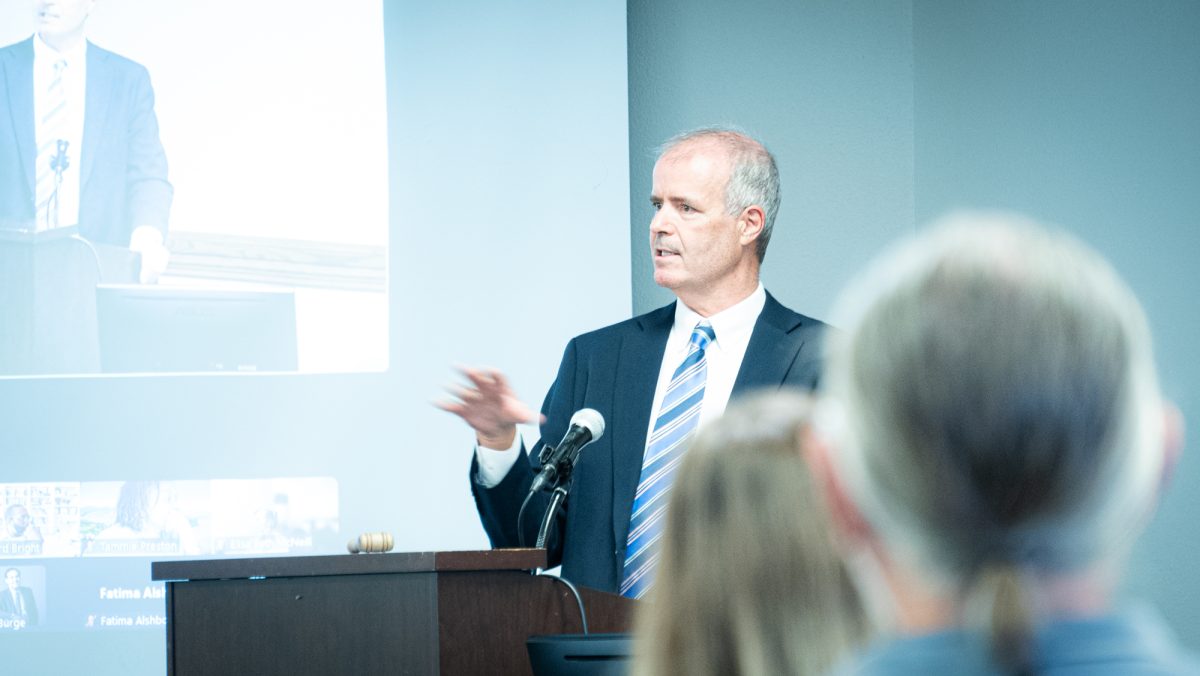Texas A&M management senior Adriana Lopez received a scam call on Oct. 24 that ultimately led to her losing $10,000. Lopez said she hopes these events will show other students to be more cautious about who they give their information to.
Lopez said the beginning of this ordeal started with a person on the phone who claimed to work for Social Security whose phone number appeared to be the same as the Social Security Administration. This person said someone was buying drugs in Latin America using her name and Social Security number, and he threatened Lopez with time in jail if she did not do something to solve this problem.
“I received a call, and I always pick up my phone,” Lopez said. “So I answered the phone, and I said, ‘Hello.’ He said, ‘This is Social Security. Your number has been traced to some illegal activities,’ and I thought that was weird.”
Lopez said the man on the phone told her she could go to court and risk going to jail or deal with it directly right then. She was afraid of the prospect of jail time, so she opted for the second choice.
“He said, ‘With this procedure, what you do is we are going to tell you what to do, and you need to get it done. And then that way we know you are clean, that you are clear and that you are not the person that has been misusing your number,’” Lopez said.
Another thing Lopez said she found peculiar was the man on the phone told her she was not allowed to tell anyone about what she was going to do, because if word got out that there was a problem with her Social Security number, she could get in further trouble.
“He said I had to complete it right now, or I would go to jail,” Lopez said. “He kept stressing about going to jail, and I was like, ‘I don’t want to go to jail, I don’t want to have to pay for international lawyers.’ Also, I did not know that Social Security cannot contact you through the phone.”
The man on the phone told her to withdraw a certain amount of money from her bank account and deposit it into a Social Security account to make sure whoever had been using her number could not access the money.
“He kept encouraging me to be fearless and feel good about myself, which is really weird, because the police don’t do that,” Lopez said. “In between phone calls I was like, ‘This is weird. If you’re actually in the government, you will freeze my account. There is no need for you to tell me I need to go and take all my money and deposit it somewhere.’”
Lopez said by this point she had called the police once because she was worried she might be in physical danger. The operator for College Station Police Department said that there was nothing they could do. The assumed social security worker on the phone started asking about her current location, and if anyone was with her, so she called the police again.
“I stepped outside, called 911, and it was the same lady from the College Station Police Department,” Lopez said. “She said, ‘If there is no physical emergency at this moment, please don’t call this number. That is not what this line is for.’”
She then googled the Social Security number and dialed it directly from the Google page. This time, the call was very different in that the call went through immediately, and there was an informational operator that gave her a list of instructions on how to deal with the problem. By waiting on the line and speaking to a person from the actual Social Security Administration, Lopez found out she was a victim of fraud.
“They said, ‘Yeah, this was fraud. They stole your money, and most likely your personal information,’” Lopez said. “I was on the phone with them for so long that I don’t really remember all the information I gave them, so I ended up just putting a freeze on my Social Security number so they couldn’t use it if they wanted to.”
Danny Davis, associate professor of the Practice and Director of the Graduate Certificate in Homeland Security, said it is important for people to be more aware of security concerns like these.
“The biggest problem with cybersecurity is probably ignorance of the user,” Davis said. “Anything that you’ve put out there in the ether, if you will, it’s out there forever.”
John Romero, assistant director of the A&M Cybersecurity Center, said some scammers get the results they want by instilling a sense of urgency in their victims.
“I think part of the problem is that social engineering,” Romero said. “It is really the target to get information. It’s really easy to click that button or answer that call, so we have to be ready. A common thing you see with scams is a sense of emergency. They’ll say that you have to do something now or something drastic could happen.”
Davis said the best way to make sure information is safe is to make sure it is only in the responsible hands.
“If you’re ever responding to something, just make sure it’s a legitimate source, and that you’re not just giving out your info to anybody or to an unknown source,” Davis said.
A&M student loses thousands of dollars to Social Security scam
November 12, 2019
Photo by Creative Commons
Scam
0
Donate to The Battalion
Your donation will support the student journalists of Texas A&M University - College Station. Your contribution will allow us to purchase equipment and cover our annual website hosting costs.









